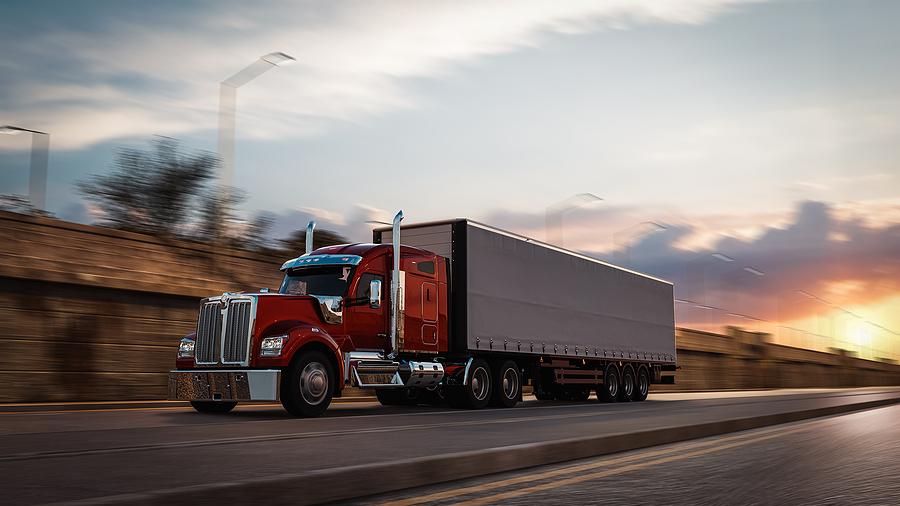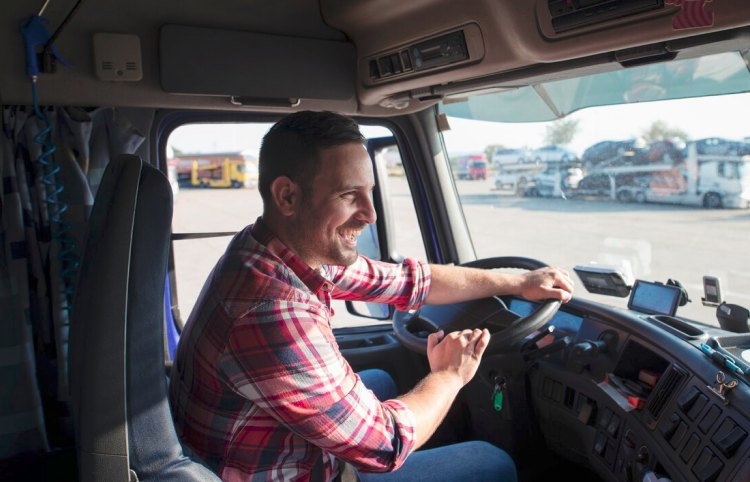El seguro de automóvil comercial no es sólo una compra opcional. Es un requisito legal para cualquier transportista antes de que se apruebe una solicitud de la Administración Federal de Seguridad de Autotransportes (FMCSA). La oficina central de la compañía de seguros debe proporcionar a la FMCSA la prueba del seguro de responsabilidad civil y de carga. El tipo de seguro y los límites dependen del tipo de registro presentado ante la FMCSA.
BMC-91/BMC-91X:
Los límites de daños corporales, restauración medioambiental y daños materiales del seguro de responsabilidad civil deben cumplir los siguientes límites:
- Carga: de $300.000 a $5.000.000 en función de lo que se transporte ($300.000 si la carga no es peligrosa y el camión y el remolque pesan menos de 10.001 libras hasta $5 millones para materiales peligrosos).
- Pasajeros: $5.000.000 ($1.500.000 si la capacidad no supera los 15 pasajeros)
BMC-34 o BMC-83:
Se requiere una cobertura de seguro de responsabilidad civil como la indicada anteriormente, más:
- Seguro de carga: $5.000 por vehículo
- $10.000 por incidente
Esas son las coberturas de seguro requeridas por el gobierno federal, pero también hay requisitos estatales. Si usted arrienda o tiene un préstamo para sus camiones, su banco puede tener requisitos adicionales hasta que lo haya pagado. Además, esas coberturas requeridas pueden no ser suficientes para su negocio. Es importante entender bien los pormenores del seguro para empresas de transporte por carretera y por qué es tan importante contar con la póliza adecuada.
¿Qué cubren los distintos tipos de seguro de automóvil comercial?
Antes de elegir la póliza adecuada para su negocio de camiones, debe comprender los distintos tipos de cobertura de seguro.
Seguro de responsabilidad civil
El seguro de responsabilidad civil protege al conductor y a los heridos en caso de accidente. También cubre los daños al entorno a través de la cobertura de daños materiales y medioambientales. No sólo es obligatorio por la FMCSA, pero los estados también requieren cobertura de responsabilidad general que protege contra cualquier daño a la propiedad o daños corporales causados por su conductor.
Seguro de daños físicos
Con el seguro de daños físicos, cualquier reparación que sus camiones y remolques comerciales necesiten después de una colisión, un desastre natural, robo o vandalismo está cubierta por el seguro de daños físicos. Si el camión o el remolque sufre un siniestro total, el seguro de daños físicos cubre el valor de la pérdida para que puedas sustituirlo.
Opciones adicionales:
Estos son los dos tipos principales de seguro, pero hay muchas coberturas adicionales que puede contratar para proteger su negocio de transporte por carretera.
Cobertura Bobtail: Este tipo de seguro cubre situaciones en las que el conductor no está trabajando, sino conduciendo el camión por motivos personales. Los daños al camión o a la propiedad causados por un accidente no estarían cubiertos si el camión se utilizara para uso personal. La cobertura Bobtail se activa siempre que el conductor utilice el camión para uso personal.
Pago médico: Si tu conductor o un pasajero resultan heridos en una colisión, el seguro de pago médico cubre el coste de la atención médica.
Motor Truck Cargo: Proteja su carga con este tipo de seguro para camiones comerciales. Si una carga se pierde o se daña, la cobertura del seguro protege contra pérdidas financieras. Hay dos tipos de seguro de carga: Todo Riesgo y Riesgos Especificados. Todo Riesgo cubre todo tipo de riesgos, mientras que Riesgos Específicos se centra en cuestiones específicas como derrumbes de puentes, vuelcos de remolques y vientos fuertes.
Avería de remolque frigorífico: El seguro de avería para camiones frigoríficos cubre la pérdida de mercancías en caso de avería de un remolque frigorífico. También cubre el coste de las mercancías dañadas en caso de colisión. Esta cobertura puede tener exclusiones, así que asegúrate de saber qué productos congelados o frescos están cubiertos y cuáles no.
Reembolso de alquiler: Si tu camión sufre una colisión o un accidente que llevará tiempo reparar, la cobertura de reembolso de alquiler paga el alquiler. Suele haber un límite diario en la cantidad que cubre la compañía de seguros, y puede que no sea suficiente para más de un modelo básico.
Intercambio de remolques: Si su conductor tira de un remolque que no pertenece a su empresa, necesita un seguro que le proteja contra daños por colisión, explosión, incendio, robo o vandalismo. Si se producen daños en un remolque que forma parte de un acuerdo de intercambio de remolques, este seguro le protege.
Conductores sin seguro o con seguro insuficiente: Si su camionero tiene un accidente y el conductor culpable no tiene seguro o no tiene suficiente seguro, puede ser un golpe financiero. El seguro sin seguro o con seguro insuficiente protege contra estas situaciones. Hay estados con leyes de seguro de coche sin culpa, por lo que ayuda a trabajar con un agente de seguros de automóviles comerciales para asegurarse de que tiene una cobertura que coincide con los estados en los que sus conductores conducen o pasan.
Analice las necesidades de su empresa
Antes de empezar a comprar seguro de camiones comercialesEn primer lugar, debe analizar las necesidades de su empresa. Responda a estas preguntas.
- ¿Cuántos camiones tiene su flota? ¿Cuántos conductores hay para esos camiones?
- ¿Es usted propietario de sus remolques?
- ¿Se permite a los conductores utilizar los camiones para uso personal?
- ¿Qué carga transporta? ¿Maneja materiales peligrosos?
- ¿Adónde van sus conductores? ¿Por qué estados pasan?
- ¿Cuánto tiempo llevan sus conductores con la licencia CDL?
Factores clave a la hora de elegir un seguro
Si responde a las preguntas anteriores, tendrá un punto de partida para buscar la cobertura que necesita. Tiene que encontrar una póliza asequible, pero también tiene que cumplir la legislación vigente y las necesidades de su empresa. No puede optar por la póliza más barata si no le ofrece la cobertura que le protege de la ruina financiera en caso de accidente.
Deducibles
Toda póliza tiene franquicias y límites de cobertura. Asegúrate de que la cobertura satisface tus necesidades y de que las franquicias son asequibles. Si tu conductor choca contra un muelle de carga y causa daños por valor de $20.000 al remolque frigorífico de tu empresa, una franquicia alta de $10.000 puede parecer asequible en lo que respecta a las primas mensuales, pero a la hora de las reparaciones, ¿tienes liquidez para cubrir los $10.000 o te resultaría difícil cubrir el coste de las reparaciones?
Si el seguro cubre un límite de $10.000 para cargas no peligrosas y el siniestro es de $15.000, ¿puedes permitirte esos $5.000 adicionales que no estarán cubiertos? También hay que tener en cuenta este aspecto.
Las exclusiones limitan la cobertura
Cualquier póliza de seguro puede tener exclusiones que pueden anular su cobertura. Es importante leer atentamente la letra pequeña. Algunas de las exclusiones que las empresas de transporte por carretera no suelen darse cuenta de que pueden ocurrir incluyen la cobertura al cargar y descargar un remolque, las averías de los camiones frigoríficos causadas por un mantenimiento deficiente o los gastos de flete devengados.
Busque oportunidades de agrupación
Es posible ahorrar dinero agrupando pólizas de seguro. Si eres el propietario de los almacenes o garajes de tu empresa de transporte por carretera, puedes agrupar el seguro del edificio y el seguro de camiones comerciales para obtener una tarifa más baja.
Lea los comentarios de los consumidores y las valoraciones del sector
Comprueba las opiniones y valoraciones de una compañía de seguros antes de elegir. Si ves muchos comentarios sobre personas a las que se les deniegan reclamaciones, es mejor que evites esa compañía.
De compras
No te quedes con la primera compañía de seguros que encuentres. Compare tarifas con al menos media docena de compañías. Las tarifas no son el único factor a tener en cuenta: asegúrese de que es fácil contactar con el agente o la compañía y de que responden a sus preguntas. Si es difícil ponerse en contacto con un agente antes de ser cliente, ¿lo será más fácil cuando firme una póliza?
Puede ser difícil encontrar el mejor seguro comercial para una empresa de transporte por carretera. Estamos aquí para hacer que sea más fácil de navegar. TBS trabaja con una amplia selección de agencias de seguros que ofrecen a los propietarios de empresas de transporte por carretera y a los propietarios-operadores precios competitivos para satisfacer sus necesidades de seguro.
Más información sobre su empresa y lo que busca. Si no está seguro, podemos ayudarle a determinar la mejor cobertura de seguro y cualquier complemento que proteja su negocio de accidentes e imprevistos.





